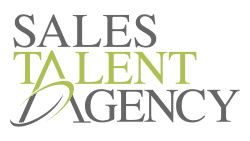
By Kristin Condon
Any good sales representative knows that preparation is often the key to success. This applies to all aspects of a sales process – from the discovery to the presentation, right up to negotiating and closing the deal.
Preparation also plays an important role in an interview process and can not only help you feel more confident but can help you stand out above the competition. At Sales Talent Agency, we refer to preparing for an interview as the Pregame. The term Pregame actually refers to the pre-show before a main event – and that really is what this is. You are preparing for the big show – a phenomenal job opportunity that could be a next big step in your career – and you do not want to leave anything to chance.
What goes into a good interview pregame? Here is a summary of the key areas you should consider when preparing for a sales interview.
Research
-
Know where you are going and how long it will take to get there. This seems obvious but many almost take it for granted and will forget to do this until they are walking out the door.
- Google who you are meeting with. Take the time to look them up on LinkedIn so you can see their history and success with that company or in that industry, and see if you have anything common. (i.e. maybe you went to the same school or both played hockey). You can often find a good ice breaker.
- Review the website backwards and forwards; read any press releases; research who the competition is. Show that you have an interest in learning and understanding who they are and that you are proactive about it.
Presentation
- Dress for the industry (banking is more corporate; advertising is more creative/trendy/ funky) but it still needs to include a suit or blazer.
- Do not wear too much cologne or perfume (or smell like smoke); wear too much make -up; and no clangy or distracting jewelry. Hair (including facial hair) should be trim and neat. Fresh breath is important but no chewing gum.
- Be early; bring multiple copies of your resume including a copy for yourself.
- Be friendly to everyone you meet (including the person at the front desk).
- Turn your phone off and please do not take selfies (yes, I had a candidate do this and yes, they did not get the job).
- When greeting someone – stand up, have a firm (not crushing, not weak) handshake and smile.
- Be on top of any bad habits – knuckle cracking, winking, etc. – they only distract and are often not interpreted positively.
- Present yourself as though you are already working for this company and are now representing them to a client.
The Interview
- Review the job description so you have a clear understanding of what are the main responsibilities and requirements of the job. Write out the skills/experience/ education you have that aligns to those responsibilities and requirements. An ideal fit for a job will have 70-80% of what the company is asking for.
- Prepare specific examples of situations of where you have demonstrated these skills or responsibilities. Past performance is a strong predictor of future performance.
- Brag book – know your value; the what, how and when of your success. Know your metrics/numbers inside and out; how you compared to other reps in the same role as you; share any recognition you received or achievements you accomplished. Even personally – sports or academic awards are viewed positively and show signs of a disciplined, team-oriented, competitive, self-motivated and driven individual.
- Questions – you should always have questions prepared to show you are engaged in this process and thorough in your decision making. The questions should be appropriate for the interview stage you are at. Do not ask how many sick days there are granted (you should never ask that question). Do not ask about compensation unless the interviewer brings it up. Ask about company strategy over the next 5 years or what challenges you would face in the first 6 months in the role. Ask questions that are smart and impressive, will leave a good impression and will give you some great insight to the position and company as well.
- The Close – ASK FOR THE JOB. A good salesperson will try to close the process or at the very least, will ask for the next step. Asking “what is the next step” is not asking for the next step. Asking “do you feel that I have what you are looking for to move me forward to the next step” is asking directly for the next step.
Follow-Up
- Be sure to send a quick, triple spell-checked, thank you email. If you did not get their business card then call the company’s main number and ask reception like any good sales rep would do when prospecting.
Finally – go in to win it. Show you want it. Show passion, energy and excitement. In the event you do not get the job, you will still leave a positive impression and still feel great about the effort you put into it. Successful people will do things that others won’t and that often starts with preparation.
Good Luck!
